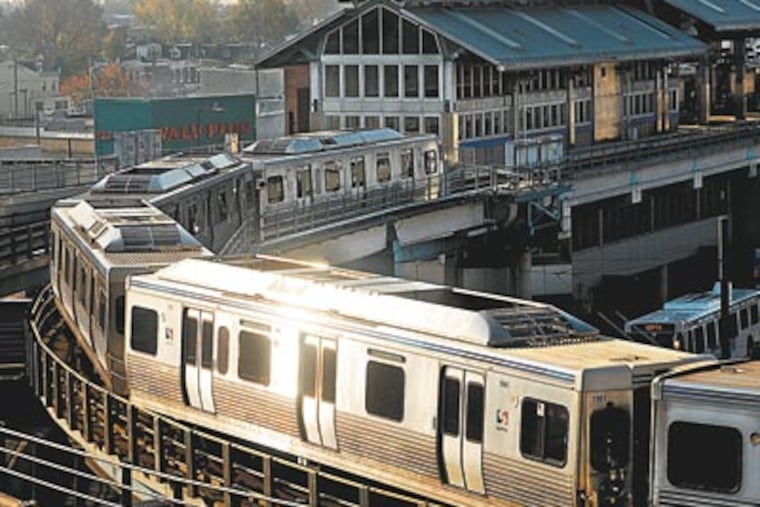SEPTA fares will increase July 1
SEPTA fares will increase on July 1, following approval Thursday by a divided SEPTA board.

SEPTA fares will increase on July 1, following approval Thursday by a divided SEPTA board.
The price of a bus or subway token will increase to $1.55 from the current $1.45, the cost of a weekly transit pass will go to $22 from the current $20.75, and a monthly Zone 3 commuter rail pass will cost $155 instead of $142.50.
Transfers for subway, bus and trolley riders will go to $1, from the current 75 cents.
SEPTA will also eliminate off-peak train fares before 7 p.m. on weekdays, a move criticized by passenger advocates. Passengers now pay peak fares only on trains arriving at Center City stations before 9:30 a.m. and leaving Center City between 4 and 6:30 p.m.
The base cash fare for buses, subways and trolleys will remain at $2.00, as it has since 2000. Only about 13 percent of transit riders pay the cash fare.
Delaware County's two representatives on the 15-member SEPTA board voted against the agency's $1.18 billion operating budget for the fiscal year that begins July 1, which contained the fare increases.
Both representatives, Daniel Kubik and Thomas Babcock, left quickly after the vote, without explaining their opposition. Reached by phone after the meeting, Kubik declined to explain his vote.
Babcock last week had criticized the move to hold the line on cash fares.
He said at a board committee meeting that it was unwise to keep the $2 cash fare while trying to get riders to use passes or tokens.
"Why not raise it to $3 to further reduce the number of people who use it?" Babcock said last week.
The city of Philadelphia's two representatives on the SEPTA board, deputy mayor Rina Cutler and Beverly Coleman, were both absent from the board vote. Both were away for personal reasons but supported the fare increase and the SEPTA budget, said Mayor Nutter's press secretary, Doug Oliver.
Anthony DeSantis, president of the Delaware Valley Association of Rail Passengers, criticized the decision to do away with mid-day off-peak fares and the increase in the price of transfers.
He said the elimination of the off-peak fares, along with the increase of rail fares, amounted to a double increase for mid-day riders. And he said it would be better to increase the base fare to $2.25, rather than hike the cost of transfers.
The SEPTA board also approved its capital budget for the new fiscal year, without dissent. That $300 million budget reflected a $110 million reduction because of cuts in state funding brought on by the federal rejection of Pennsylvania's effort to convert Interstate 80 to a toll road to raise transportation funds.